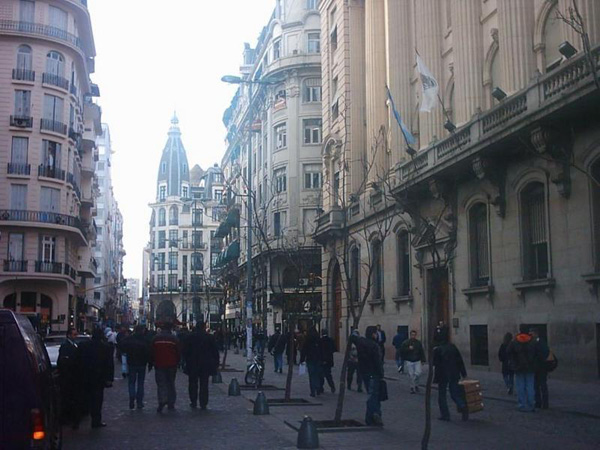RIO DE JANEIRO, BRAZIL – The ban on firing workers in Argentina during the pandemic seems to be storing up more problems than it solves in what was already one of the world’s worst job markets.
Annual inflation in Latin America’s third-largest economy stands at around 40%, the Central Bank is short of dollars, and talk of a currency devaluation is near-constant. The government is trying to restructure the US$44 billion it owes to the International Monetary Fund (IMF) after the collapse of a loan program last year.

Most emerging economies are struggling to find resources for pandemic relief efforts, including measures to protect jobs implemented by wealthier countries. It is particularly difficult for Argentina’s President Alberto Fernández, who completed a year in office on Thursday.
His administration is running stimulus programs that broadly resemble those deployed in other countries, including a paycheck protection program to subsidize companies that retain their staff. But the country has had to print money to finance them – about 1.76 trillion pesos (US$21.5 billion) so far – which fuels fears of even higher inflation next year.
The government is weaning companies and informal workers off two separate paycheck relief programs as dollar reserves run low, the stick as well as the carrot to protect jobs.
Argentina has banned companies from firing workers since March, a prohibition no other major country has maintained for so long, and recently extended the measure into 2021. It’s also requiring companies to pay double the ordinary amount of severance if a worker is fired “without just cause,” according to a government decree.
Bankrupt Businesses?
Some economists say the policies are jeopardizing the jobs they’re trying to protect, and the government may face pressure to reverse them during talks with the IMF.
Unable to fire workers, companies have resorted to suspensions, which soared as much as ten times from pre-pandemic levels during the firing ban, effectively postponing future job cuts.
“You’re going to have a lot of formal employment destroyed next year,” says Eduardo Levy Yeyati, a former chief economist at Argentina’s central bank and Brookings Institution fellow. The government “at some point is going to have to allow companies to reduce personnel, because if not, many are going to go bankrupt.”
Unemployment in Argentina, as in most countries, has spiked this year. But the official rate of 13% doesn’t include 2.5 million workers – one-fifth of the registered labor force – who’ve left the formal job market entirely.
If those people were counted too, the unemployment rate would be above 28%, according to a new report from the Catholic University of Argentina. There’s also a large informal sector, as in many Latin American countries, and employment there is collapsing too: It fell 35% in the second quarter of this year, government data show.
“There’s always going to be a debate on measures such as layoff restrictions,” says Argentine labor economist Roxana Maurizio, a consultant for the International Labour Organization (ILO). “How much can they help you today but create negative incentives for hiring tomorrow?”
In some ways, the debate is part of a wider one that’s been going on for decades in Argentina. Critics accuse left-populist governments like Fernandez’s coalition of implementing policies – from price controls to trade protections and labor rules that give broad powers to unions – that appease their voter base at the expense of the overall economy.
Argentina’s left, in turn, can point to the failures of right-wing governments like the one in power for the four years through 2019. It cut spending, implemented market-friendly policies and got a record IMF bailout – and still presided over an economic collapse.
Claudio Moroni, Fernandez’s Labor Minister, acknowledges that the country’s current unemployment crisis may be its worst ever, but says the firing ban isn’t to blame.
“Attributing the Argentine economy’s problems to the job market’s design is excessive and outlandish,” Moroni said in an interview. “We’ve minimized the effects of the pandemic.”
There was a glimmer of hope in September data released last week, which showed that the private sector added 6,500 jobs, the first monthly gain in two years. Still, private employment in 2020 remains down by more than 200,000 jobs – and there are other reasons to think the problem could get worse.
The number of businesses had been shrinking amid a three-year recession, and Argentina has now some 42,000 fewer private sector employers than it did in late 2017, government data show. The rate of Argentines entering the labor force is at its lowest level on record, according to Maurizio, the ILO economist. The World Economic Forum ranks Argentina 136th out of 141 nations in labor market flexibility.

